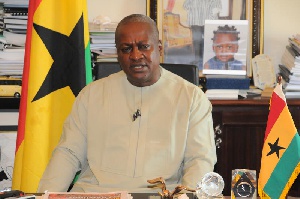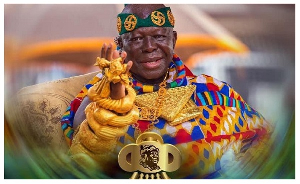- Home - News
- TWI News | TV
- Polls
- Year In Review
- News Archive
- Crime & Punishment
- Politics
- Regional
- Editorial
- Health
- Ghanaians Abroad
- Tabloid
- Africa
- Religion
- Election 2020
- Coronavirus
- News Videos | TV
- Photo Archives
- News Headlines
- Press Release
General News of Tuesday, 5 February 2013
Source: The Finder
Prez Mahama under siege
Demands for better pay from workers, higher utility rates from utility providers and pressure to increase petroleum prices from donors are combining to stretch the government of President John Mahahma rather early in its administration.
One of the first organizations to bare its teeth was the National Association of Graduate Teachers (NAGRAT), who threatened to declare a nationwide strike over delays in the payment of salary arrears and allowances due their members after they were migrated onto the Single Spine Salary Structure (SSS).
The agitation from teachers forced the government’s Chief of Staff, Mr. Prosper Bani, to hold meetings with the leaders of the Ghana National Association of Teachers (GNAT) and NAGRAT to avert the threatened strike action.
Even before the teachers’ issue could be fully digested, the country’s doctors also served notice of their intention to redraw their services starting from Monday February 18, 2013 over issues arising from the migration onto the new pay policy.
While the wage issues of civil servants remain pending, the utility companies have also asked the public Utilities Regulatory Commission (PURC) to allow it to increase utility charges, as it was under-recovering its investments.
To drum home the point, the Volta River Authority (VRA) has also come out to say the current level of tariffs is impairing its delivery of service, even as its system reserve margin has become completely depleted.
Lurking in the background is the problem of the ballooning debt being blown by the subsidies on petroleum products.
The National Petroleum Authority (NPA), based on approved formula, wanted to announce between 5 to 10% increment on prices of petroleum products in the third week of January this year, but the government stepped in to say that it was absorbing price differentials amounting to about $4 million.
What is yet to be explained is where the $4 million is coming from and whether government intends to make subsidizing petroleum permanent.
At a recent meeting with officials from the Volta River Authority (VRA), Electricity Company Of Ghana (ECG), Bulk Oil Storage and Transportation Company Limited and members of the petroleum distribution companies, the President is reported to have stated that “the increase is not an easy decision for us to take, especially its spiral effect and considering hardship it would impose on Ghanaians.”
Government has over the last 13 months doled out nearly $1 billion subsidizing petroleum products, and the utility services, whose development, industry experts and development partners say, is unsustainable and likely to hobble the government’s ability to deliver on its infrastructure and services promises.











